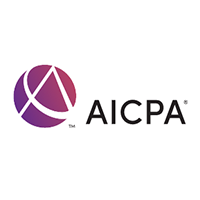
This course explores advanced planning ideas and tax-saving strategies to keep more of your clients' money in their pockets. Updated for the latest...
11/22/2023 8:00am - 12:00pm | Online | AICPA
Members: $213.00, Non-members: $261.00
CPE Categories: Taxation (4 CPE)
Clients want help with present and future business services.
Which tax planning strategies will you provide for your corporate and small business clients? This course explores state-of-the-art planning ideas and tax-saving strategies to keep more of your clients' money in their pockets.
Updated for the latest legislation and IRS guidance, this course answers the tough questions and show you what strategies are best for your clients. It also discusses new retirement plan options for small businesses, introduced by SECURE 2.0.
The entire course is designed around the idea that the needs of the small business owner change as the business moves through the business life cycle. Taxes are just one consideration of many that must be considered when forming a new entity.
Throughout the course, you will learn about different entity types. "What do you need to do to form a sole proprietorship, partnerships, or other type of entity?"
You will think about the nuances of each entity structure as we address this question.
Instructor: David Peters
Tax professionals
Identify important tax considerations for the small business at each stage of its life.
Differentiate entitytype options available for small businesses.
Calculate the qualified business income deduction under Section 199A.
Choose the correct tax treatment for fringe benefits granted to partners and S corporation shareholders.
Choose when to take Section 179 expense or bonus depreciation based on the facts and circumstances.
Select a tax accounting method that is appropriate for a particular business.
Recognize tax issues involved in the exit of a shareholder from a corporation.
Select among ways to dispose of or liquidate a business in a taxefficient manner.
Starting a business
the tax life of a business
Selecting a business entity type
The Tax Cuts and Jobs Act
Section 199A and the qualified business income deduction
Accounting methods
Compensation of owners
hiring family members
Reasonable compensation
Depreciation, Section 179, and bonus depreciation
Transactions with owners
Buysell and noncompete agreements
Exiting the business
special exit techniques
Experience in business taxation
© Copyright 2025 KSCPA | All Rights Reserved